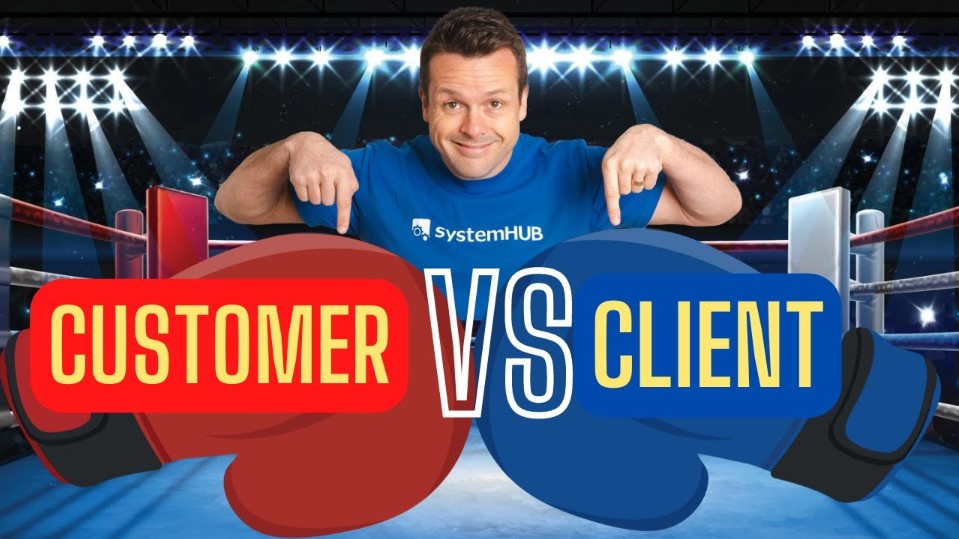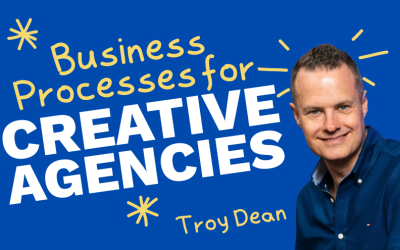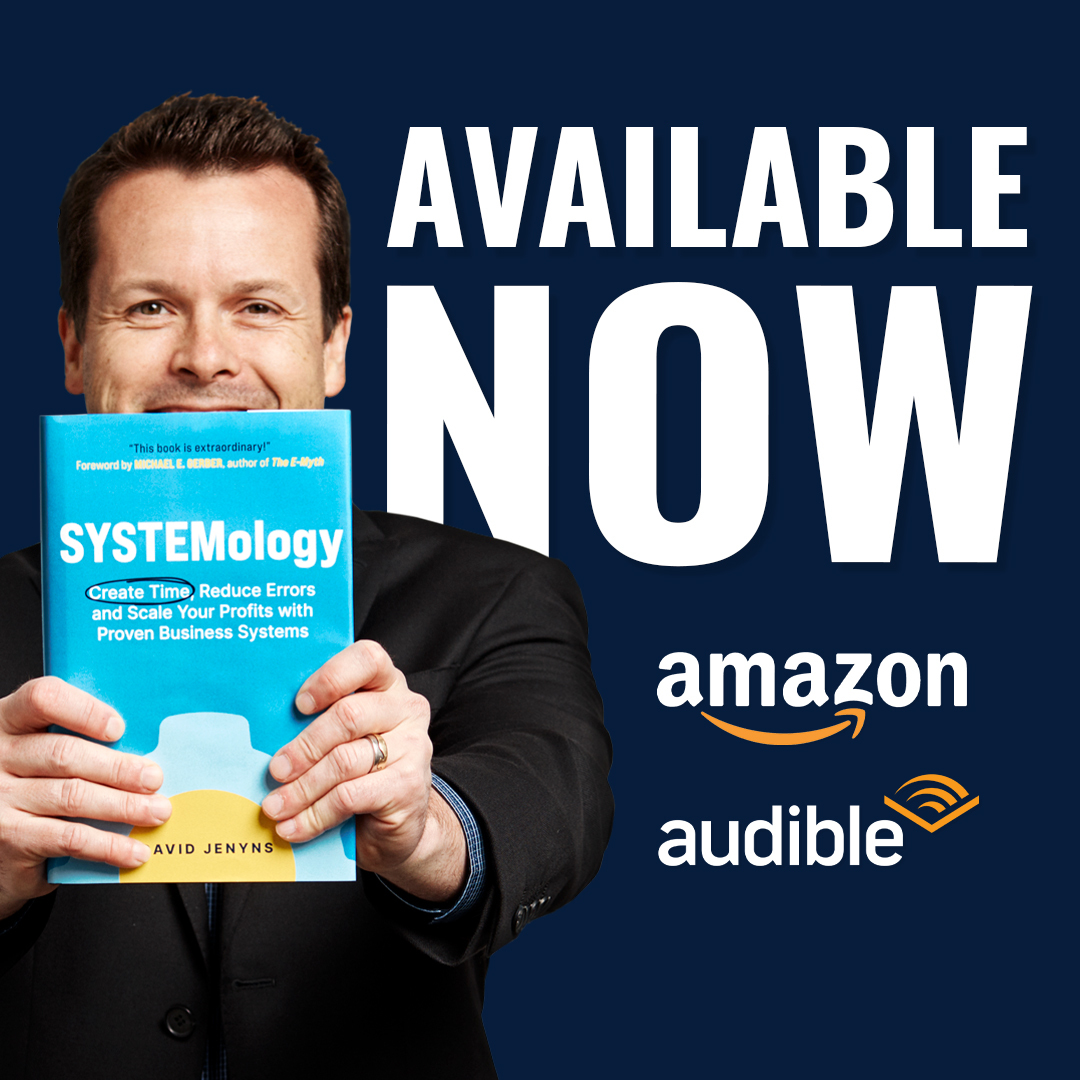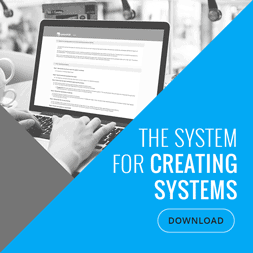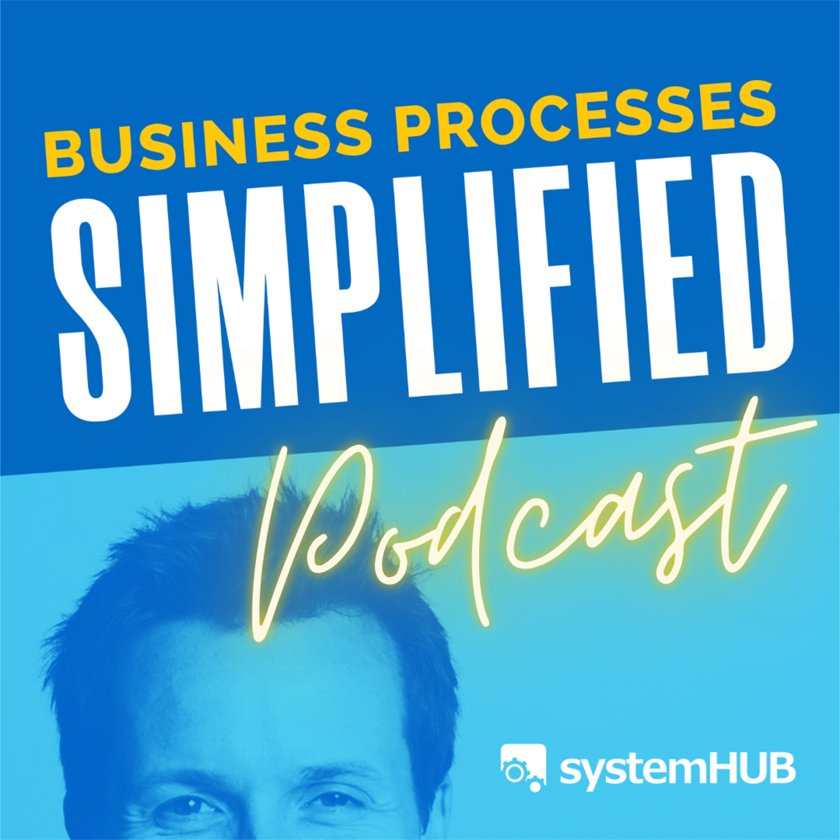Do your staff know the difference between customers and clients?
Many business owners don’t train their staff on whether they sell to clients or customers. And because they use the terms interchangeably, it becomes commonplace to use either/or when discussing clientele.
But it is important to understand the difference because it directly impacts the level of service you provide.
A customer is someone who buys products or services from a company, while a client refers to a certain type of customer who purchases professional services from a business. Generally speaking, customers buy products while clients buy advice and solutions.
Knowing the difference helps you to focus on the correct level of service required to build
long-term relationships and brand loyalty.
In this video, David Jenyns explains clients vs customers and how to think about the differences between the two.
Timestamps:
0:47 – Who are customers?
1:27 – Key characteristics of a customer
2:06 – The mindset of a customer
2:40 – Who are clients?
3:22 – How your business should treat its clients
4:46 – How SYSTEMology engages with you as a client
5:30 – Benefits of treating your client right
6:31 – Q&A of the customers vs. clients lesson
Transcription:
Today I want to go through this idea of what a customer is versus a client.
So who’s a customer? When you walk into a supermarket, you’re a customer. And as a customer, you’ll pick things up off the shelf, walk up to the front register and check out.
In most cases, you’ll have no real engagement with the checkout person. And at times, the checkout will be one of those self-service ones where they’re just selling you the product. In such checkouts, there’s no real thought, no advice, and no direction around your product selections.
So a supermarket deals with customers where the focus is on customer transactions. There’s no real long-term investment in the person getting the outcome. Supermarkets only think about the volume game.
As for customers, their focus is mostly on product prices. For example, why do you shop at one supermarket versus another when shopping for groceries? It’s because one supermarket has the right price range that you’re after.
On the other hand, some people will be more influenced by product quality rather than price. However, the customer won’t enjoy any other value other than product quality.
When you think about it, as a customer, your focus is short-term. All you’re thinking about is the sale right now. You’re not thinking about the sale six months down the road.
And for the supermarket, they’re not thinking about getting you to sign up for their newsletter. Or trying to get you to return and make more purchases. They’re thinking, “Hey, can you just make this purchase right now?” Their focus is on selling products now. They’re not thinking about who their customer is or what they need.
However, that’s not the case when dealing with a client. For example, when you visit your doctor, your doctor won’t call you a customer. You will be referred to as a client or a patient.
And your relationship with your doctor is very different from your relationship with your favorite supermarket. That’s because, for you, your doctor is a trusted advisor. Doctors have specialized knowledge that they apply to your unique set of circumstances when you’re sick or looking for medical advice.
They’ll have a discussion with you to find out your pain points, what you need help with, or the problems you’ve got. They’ll examine all of your symptoms and later prescribe a solution that will solve your medical problems. Your doctor might offer you a drug or request you change your lifestyle habits.
So as you can see, the relationship between doctors and their clients or patients is very different from that between supermarkets and their customers.
And that’s because your doctor will take their body of knowledge and invest it in you to ensure your health recovers or you make the right health and lifestyle decisions.
The relationship between you and your doctor is also usually long-term. That’s because once you find a doctor you trust and can confide in, you’re highly likely to use their services for as long as they’re available. A good example is family doctors. Your family doctor will invest in your long-term health success and you will enjoy the long-term results.
So when thinking about the difference between customers and clients, examine their relationship with their service and product providers.
The relationship with customers is transactional, while the relationship with clients is geared towards gaining long-term results.
This is the same kind of thinking that we employ here at SYSTEMology when dealing with our clients.
Our goal here at SYSTEMology is to help business owners and their teams achieve their goals. We do this by supporting and helping businesses identify the systemizing problems plaguing them. And then providing these businesses with actionable advice they can use to solve their problems.
Our objective isn’t to sell you our product or services. No. Our objective is to serve and be your trusted adviser. Even if our product or services aren’t the right fit for you, we’ll still strive to maintain a long-term relationship with you by pointing you in the right direction and providing value.
We’re invested in helping you and your company to do better, even if you’re not a paying client. We want you to trust us. And who knows, maybe you might decide to ask for our services in the future. Or you could refer our services to your friends or colleagues.
We’d like you to think of SYSTEMology’s services like how you think of your trusted doctor. When you visit your doctor, you don’t go in there thinking, “Hey, all my doctor wants is to sell me some drugs so that he can earn his commission.” You walk in there knowing that your doctor is invested in ensuring you live a long and healthy life.
And that’s the way of SYSTEMology. Like Ivan Muench, our marketing specialist, says, “It’s one thing to get the customer to agree to use our service in the first place. But that’s not what we’re about. We’re about supporting our clients through that long journey and ensuring that the client is able to thrive and survive on an ongoing basis.”

